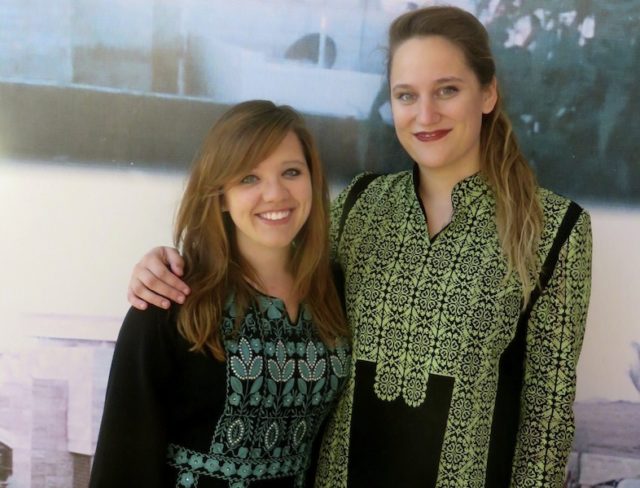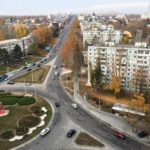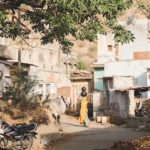What’s it Like to Be a Peace Corps Volunteer?

 There are currently 6,818 different job descriptions for Peace Corps Volunteers, one for each volunteer currently serving in one of the 64 host countries. Last month, I was sworn in as an official Peace Corps Volunteer, something I have been looking forward to since I submitted my initial application in February 2013. When I got accepted to serve in Jordan as a volunteer, many people’s first reaction was something along the lines of, “Congrats! So, what will you be doing exactly?”
There are currently 6,818 different job descriptions for Peace Corps Volunteers, one for each volunteer currently serving in one of the 64 host countries. Last month, I was sworn in as an official Peace Corps Volunteer, something I have been looking forward to since I submitted my initial application in February 2013. When I got accepted to serve in Jordan as a volunteer, many people’s first reaction was something along the lines of, “Congrats! So, what will you be doing exactly?”
The Peace Corps is a widely recognized organization, but few know exactly what volunteers do. This is because every volunteer’s job description varies, based on the needs of both their host country and host site.
Before being sworn in, the other volunteers and I underwent three months of intensive training, known as Pre-Service Training (PST). During PST we lived with host families and participated in language, cultural, and technical trainings, Sunday to Saturday. Friday was our day ‘off,’ during which we visited relatives of our host family or stayed home with our host families.
Technical training was twice, sometimes three times a week, during which we learned and practiced strategies for teaching English as a second language, almost always in small groups using flip charts. Arabic language training was for eight hours each day, except for Fridays and cultural training was 24/7, while living with a host family and constantly making mistakes as we learned how to navigate this complex culture.
I got used to people calling me “Ajnabiiya”, the Arabic word for female foreigner, and it being culturally acceptable.
During this time, I learned about the subtleties of Jordanian culture, such as not eating with one’s left hand or showing the soles of one’s feet while sitting. I got used to people calling me “Ajnabiiya”, the Arabic word for female foreigner, and it being culturally acceptable.
I also learned to accept that oftentimes, I am going to feel like a child. Although I am an adult in age, I have taken myself out of my cultural comfort zone and thrust myself into what sometimes feels like it’s exact opposite. Because I do not always fully understand, I make the same mistakes a child would make. I also got used to people viewing me as a child—underestimating how much I know or understand, needlessly explaining things to me, or doing things like grabbing my hand when crossing street.
I have to travel 45 minutes to an hour to get fresh fruits, vegetables, and bread.
PST was stressful, as promised, but provided us with the knowledge necessary for us to integrate in to our new sites.
There are 34 recently sworn-in volunteers in Jordan, clustered throughout Jordan in three regions: Ajloun, Karak, and the Jordan Valley. My site is a small, conservative Muslim village in Karak, and I am approximately 45 minutes away by bus from the nearest volunteer. In my village, there are a few small convenience stores, a health center, five schools, a youth center, and a few other small businesses.
I have to travel 45 minutes to an hour to get fresh fruits, vegetables, and bread.
My house has two floors: the first floor occupied by me and the second occupied by my host family. I have five rooms, two bathrooms (both western and Turkish toilets), and a kitchen. Right now, I use only two rooms, one as my bedroom and the other as a laundry room, because it is very cold and I only have one space heater.
My official title is Community Youth Development Volunteer, and my job description is a compilation of the education and youth development sectors. It involves three parts: School, Community Based Organization, and Youth Counterparts. This program is unique and was designed specifically for Jordan, taking into consideration its culture and what has and has not worked in the past for previous volunteers.
In the long run, my ability to succeed will directly depend on my ability to succeed at my unofficial job description: building relationships with people in my village, earning their respect, and keeping their trust.
On Sunday to Wednesday, I will assist the English teachers at a local secondary school for girls, conducting 10-15 minute activities in each class. My role at the school is not to teach entire classes, but to engage the students in fun, yet effective communicative activities. After school, I will have a short break for lunch before my two-hour shift at the youth center begins. There I will lead clubs or workshops in whatever the community expresses an interest, such as an English club, fitness class, environment club, or resume writing workshop.
Thursday and Friday are my days off, and on Saturdays I will work at the youth center for four hours in the morning. So far, most everyone has expressed interest in an English club, where they can practice their English speaking skills while also learning about American culture.
This unofficial job description of every volunteer is one of the reasons why every volunteer’s job description is unique.
During summer vacation, I will increase my hours at the youth center, except for during the month of Ramadan, and organize youth camps, focusing on understanding world cultures, building leadership skills, and strengthening English skills.
In the long run, my ability to succeed will directly depend on my ability to succeed at my unofficial job description: building relationships with people in my village, earning their respect, and keeping their trust. This unofficial job description of every volunteer is one of the reasons why every volunteer’s job description is unique. There is no one way to connect with people and there is no one outcome.
Everyone will have an entirely different experience because the Peace Corps experience is based almost entirely on human relationships—different personalities, from different cultures with different opinions working together to achieve a similar goal.
What’s it Like to Be a Peace Corps Volunteer?
PST prepared me in many ways for the challenges ahead. Now that I am at my site, I must continue to build relationships with members of the community, communicating with them and discovering the needs of the youth, and adjusting as necessary.
These next two years will be difficult and challenging, but also incredibly rewarding, as I continue to get to know the people in my village and get the opportunities to work with them. Throughout the application process, my recruitment and placement officers assured me that Peace Corps would be the toughest job I would ever love; I am now beginning to see the truth in that statement.
The opinions and views expressed in my articles are mine personally and do not reflect any position of the U.S. government or the Peace Corps.
What’s it Like to Be a Peace Corps Volunteer?
Related Reading
Have you volunteered with the Peace Corps? What were your impressions? Email us at editor@pinkpangea.com for information about sharing your experience and advice with the Pink Pangea community. We can’t wait to hear from you.
What’s it Like to Be a Peace Corps Volunteer top photo credit: Toby Cox








